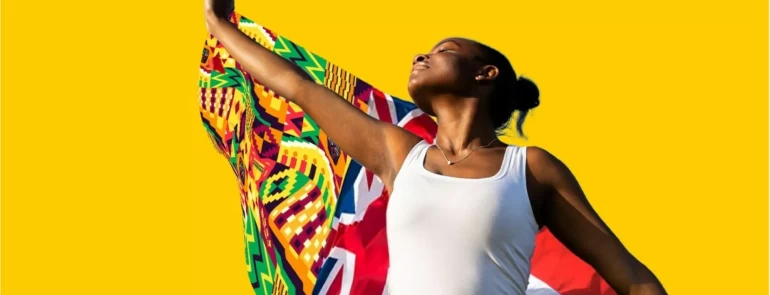The “Being African: How Africans Experience the Diaspora” report, published by Africa No Filter, delves into the experiences of young Africans residing in France, the UK, and the US. It sheds light on how they navigate their dual identities, grapple with perceptions of Africa, and negotiate their sense of belonging in both their adopted homes and the continent of their heritage.
The report unveils the realities of navigating life in the diaspora, highlighting the challenges faced by these young individuals. Discrimination emerges as a prevalent theme, manifesting differently across the surveyed countries.

Understanding the Nuances of Discrimination:
Exoticization in France: The report describes how young Africans in France often encounter exoticization. This phenomenon involves being perceived as inherently different or even “exotic” due to their heritage. This can manifest in various ways, from being singled out for one’s appearance to feeling excluded from social circles and opportunities. The report cites an example of a young woman in France who shared her frustration with constantly being asked about her “real” origin, despite having grown up in the country. This constant othering can be emotionally draining and create a sense of never truly belonging.
Microaggressions in the UK: The UK experience is marked by microaggressions, subtle yet harmful instances of prejudice that reinforce negative stereotypes. These microaggressions can be verbal (“Where are you really from?”), nonverbal (avoiding eye contact), or environmental (being the only person of colour in a particular space). Often unintentional, microaggressions can have a cumulative impact on individuals’ mental well-being and sense of belonging. The report highlights the experience of a young man in the UK who shared how constant microaggressions about his intelligence and work ethic took a toll on his self-confidence.
Surveillance and Profiling in the US: In the US, the report finds that young Africans navigate surveillance and profiling, often being perceived as a potential threat due to their heritage or origin. This can manifest in various ways, including being stopped and questioned by law enforcement more frequently, facing heightened scrutiny at airports, and experiencing suspicion from others in public spaces. The report cites the example of a young woman in the US who shared how she was constantly pulled aside for additional security checks at airports, causing anxiety and frustration. This constant scrutiny can be isolating and infringe upon their sense of security and freedom.
Embracing and Celebrating Dual Heritage
Despite these challenges, the report paints a vibrant picture of young Africans actively embracing their dual heritage. They express a deep sense of pride in their African roots, evident in their appreciation for their cultural heritage, including languages, traditions, music, and history. This connection to their African identity fosters a sense of community and belonging within the diaspora.
The report shares the example of a young woman in France who actively participates in cultural events organized by the local African community. This connection to her heritage provides her with a sense of belonging and allows her to connect with others who share her experiences and cultural background.
Furthermore, the report highlights the importance of preserving and celebrating cultural traditions within families. Many young Africans in the diaspora reported learning about their heritage through their families, including stories, recipes, and traditional practices passed down through generations. This cultural transmission plays a crucial role in strengthening their sense of identity and connection to their African roots.
Shifting Perceptions of Africa and Challenging Stereotypes
The report challenges the often negative narratives surrounding Africa prevalent in Western media. While acknowledging the influence of such stereotypes, it highlights that these young diasporans are not passive consumers of these narratives. Instead, they are actively contributing to shifting perceptions of Africa, promoting a more nuanced and positive image of the continent.
The report provides examples of how young Africans are leveraging various platforms, including social media, art, music, and entrepreneurship, to showcase the richness, diversity, and dynamism of Africa. They are creating content that celebrates African culture, innovation, and success stories, countering dominant narratives and fostering a more informed and accurate understanding of the continent.
One example highlighted in the report is a young artist in the UK who uses his platform to showcase contemporary African art and challenge stereotypical portrayals of the continent. His work celebrates the diverse artistic expressions of Africa and contributes to a broader appreciation of its cultural contributions.
Building Inclusive Spaces and Fostering Understanding:
The report emphasizes the importance of fostering inclusive spaces where young Africans in the diaspora feel welcome, valued, and empowered to express their unique identities. Educational institutions, community organizations, and policymakers all have a role to play in creating environments that celebrate cultural diversity and challenge prejudice.
Educational institutions can play a critical role by incorporating diverse perspectives into their curriculum and fostering critical thinking skills to help students challenge stereotypes and appreciate the richness of different cultures. Community organizations can create safe spaces for young Africans to connect, share their experiences, and celebrate their heritage. Policymakers can implement policies that promote inclusivity and combat discrimination.

